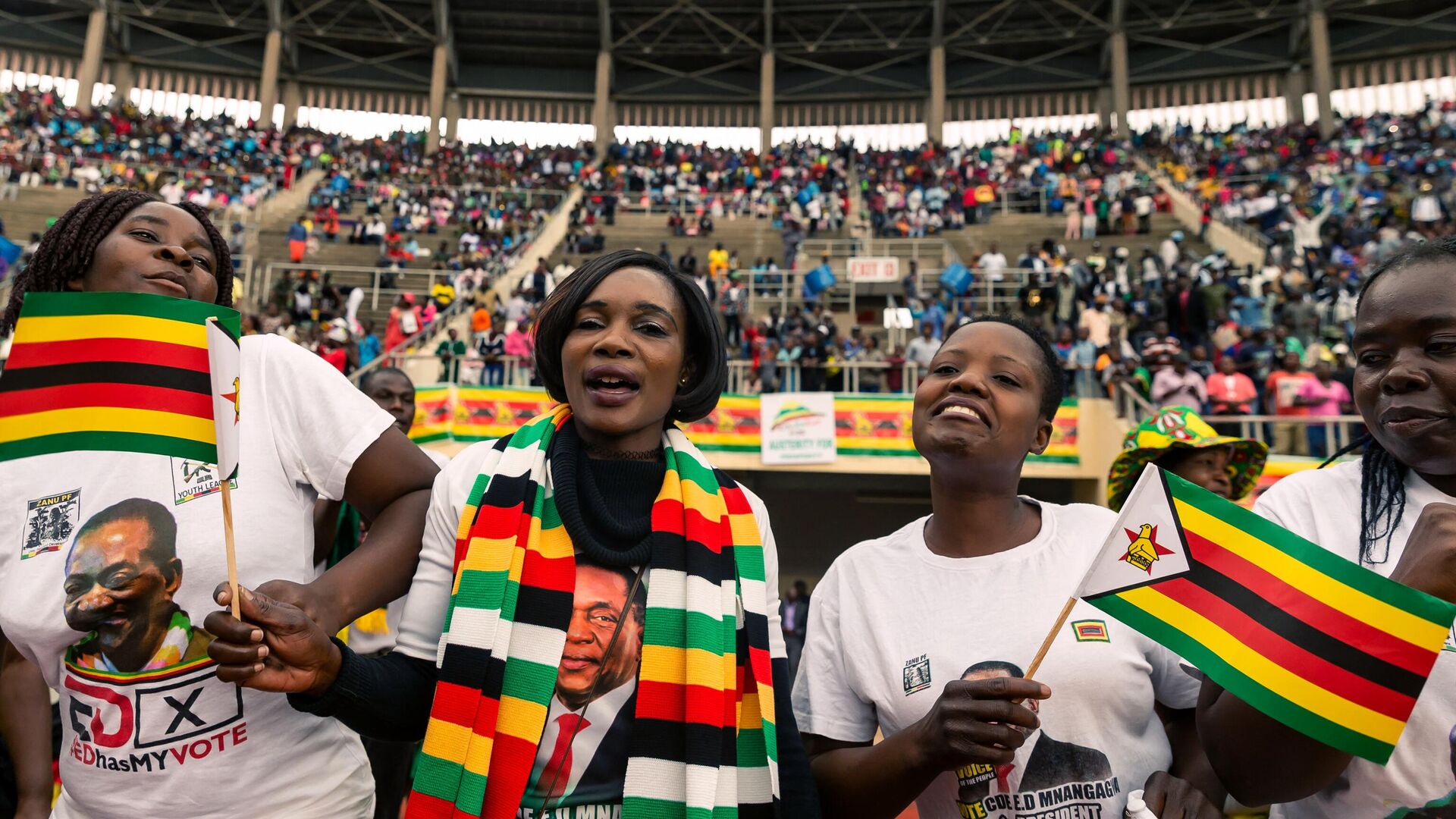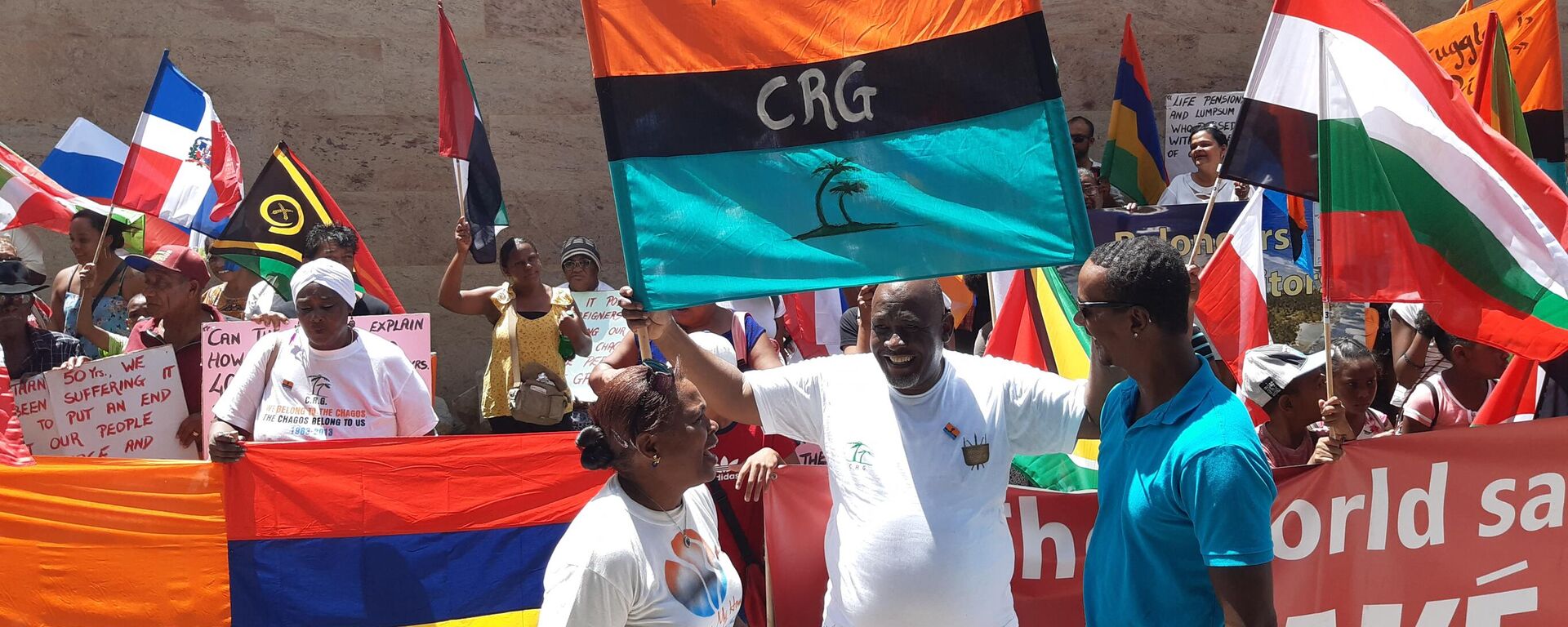https://en.sputniknews.africa/20230418/brutal-coercive-expert-recalls-colonialism-as-zimbabwe-celebrates-independence-day-1058687508.html
Brutal, Coercive: Scholar Recalls Colonialism as Zimbabwe Celebrates Independence Day
Brutal, Coercive: Scholar Recalls Colonialism as Zimbabwe Celebrates Independence Day
Sputnik Africa
Sabelo J. Ndlovu-Gatsheni told Sputnik, how negatively the colonial oppression of Britain affected the African country.
2023-04-18T18:04+0200
2023-04-18T18:04+0200
2023-04-19T09:16+0200
opinion
south africa
zimbabwe
britain
british colonialism
colonialism
neocolonialism
https://cdn1.img.sputniknews.africa/img/07e7/04/12/1058688350_0:160:3072:1888_1920x0_80_0_0_113697dd229308d795c9fde4a2bbfb11.jpg
On the occasion of Zimbabwe Independence Day, Sabelo J. Ndlovu-Gatsheni, historian and decolonial/postcolonial theorist and professor of Epistemologies of the Global South with Emphasis on Africa at the University of Bayreuth in Germany, talked to Sputnik about the harsh legacy British colonialism left on the country. First of all, the expert recalled the brutality, with which the British treated Zimbabweans. Among other negative impacts, he also outlined the fact that the colonizers prosecuted and penalized the way Africans used to live: their habits and traditions with the help of introducing the "Roman-Dutch Law".Moreover, Ndlovu-Gatsheni put an emphasis on the fact that the British also deprived the Zimbabweans from their own land, making them tenants, instead of the land owners they used to be before the colonization period.Speaking about the effects that the British colonial rule had on the development of the people in the Zimbabwe region, he mentioned that under the mask of the "civilizing mission", colonialism led to underdevelopment of the country.The expert noted that, among other reasons for the social discontent and the following uprising, was the way how the Zimbabweans were treated, as the British considered Africans as people with a lower status, who had no rights and freedoms.As for today's relations with the West, the expert stressed that both European and American policy-makers will hinder the independent development of Africa, penalizing them.In 2022, the UN Human Rights Council published a report on the sanctioned economy of Zimbabwe, emphasizing the damaging impact.Zimbabwe's economy has suffered dramatic losses since the US and EU imposed sanctions against the African nation in 2001, the report says. In particular, due to the sanctions Zimbabwe has lost over $42 billion in revenue over the past 19 years.
https://en.sputniknews.africa/20230220/1058620159.html
https://en.sputniknews.africa/20230410/1058509855.html
south africa
zimbabwe
britain
Sputnik Africa
feedback@sputniknews.com
+74956456601
MIA „Rossiya Segodnya“
2023
News
en_EN
Sputnik Africa
feedback@sputniknews.com
+74956456601
MIA „Rossiya Segodnya“
Sputnik Africa
feedback@sputniknews.com
+74956456601
MIA „Rossiya Segodnya“
independence day, independence day anniversary, 43 anniversary, 43th anniversary, official celebration, the physical brutalization, physical brutality, limpopo and the zambezi rivers, colonial oppression, african country, british colonialism, zimbabwe region
independence day, independence day anniversary, 43 anniversary, 43th anniversary, official celebration, the physical brutalization, physical brutality, limpopo and the zambezi rivers, colonial oppression, african country, british colonialism, zimbabwe region
Brutal, Coercive: Scholar Recalls Colonialism as Zimbabwe Celebrates Independence Day
18:04 18.04.2023 (Updated: 09:16 19.04.2023) Today, Zimbabwe celebrates the 43rd anniversary of independence, which the country received in 1980 having separated from Britain. The inhabitants of what was then Southern Rhodesia (the colonial name of Zimbabwe) experienced a lot of suffering during the colonial period.
On the occasion of Zimbabwe Independence Day, Sabelo J. Ndlovu-Gatsheni, historian and decolonial/postcolonial theorist and professor of Epistemologies of the Global South with Emphasis on Africa at the University of Bayreuth in Germany, talked to Sputnik about the harsh legacy British colonialism left on the country.
First of all, the expert recalled the brutality, with which the British treated Zimbabweans.
"One of the first effects was the brutality, the physical brutalization of the people who occupied the land between the Limpopo and the Zambezi [rivers]. [...] Under colonialism violence becomes, in the colonial sense, atmospheric. Everything is coerced, it's coercion," the expert stressed.
Among other negative impacts, he also outlined the fact that the
colonizers prosecuted and penalized the way Africans used to live: their habits and traditions with the help of introducing the "Roman-Dutch Law".
"By using that foreign law, they begin to criminalize the very way of African living. [...] So also in the domain of spirituality. Some people call it religion, I prefer to call it spirituality. They began to create churches in which they then criminalized the precolonial modes of spirituality and criminalized them as demonic and then introducing Christianity as the only legitimate religion," he outlined.
Moreover, Ndlovu-Gatsheni put an emphasis on the fact that the
British also deprived the Zimbabweans from their own land, making them tenants, instead of the land owners they used to be before the colonization period.
"They [the British] began to parcel out the land among themselves, and they turned the people who previously owned the land into tenants on their own land," outlined the expert. "And if you were a tenant, one of the obligations was that you needed to provide labor to the now new owner. Now the colonizers turn around and they say to me, 'I'm now your king or your Nkosi [word meaning "lord" in several Bantu languages].' So all those things had an impact and that impact really affected the dignity of the people."
Speaking about the effects that the British colonial rule had on the development of the people in the Zimbabwe region, he mentioned that under the mask of the "civilizing mission", colonialism led to underdevelopment of the country.
"Colonialism is actually the source of underdevelopment. There was no intention to develop. […] The idea of colonialism was the civilizing mission. [...] But again, civilizing meant that you dispossess them, you peasantize them, you make them propertyless people. And that to me is not development, it is actually destitution and underdevelopment," Ndlovu-Gatsheni stressed.
The expert noted that, among other reasons for the social discontent and the following uprising, was the way how the Zimbabweans were treated, as the British considered Africans as people with a lower status, who had no rights and freedoms.
"African nationalism was trying to protect the people from white settler brutality. [...] The African people were reduced, and that we need to put this very clearly, they were reduced to subjects. They were never citizens under colonial rule. [...] We were governed by custom, not by civil and political rights. Only the whites, who were living in the urban [areas], enjoyed civil and political rights, including voting rights. The colonized people had no right to vote. They were not citizens, so there were no rights to vote. The government was not theirs. They were conquered people within the colonial setup," Gatsheni emphasized.
As for today's relations with the West, the expert stressed that both European and American policy-makers
will hinder the independent development of Africa, penalizing them.
"They will always punish you that it must not have a ripple effect because the fear is that it can extend it to Namibia. It can extend it to South Africa. So Zimbabwe needed to be really made a lesson that you never, ever do this."
In 2022, the UN Human Rights Council published a report on the sanctioned economy of Zimbabwe,
emphasizing the damaging impact.
Zimbabwe's economy has suffered dramatic losses since the US and EU imposed sanctions against the African nation in 2001, the report says. In particular, due to the sanctions Zimbabwe has lost over $42 billion in revenue over the past 19 years.
"This includes lost bilateral donor support estimated at $4.5 billion annually since 2001, $12 billion in loans from the International Monetary Fund, the World Bank and African Development Bank, commercial loans of $18 billion and a GDP reduction of $21 billion," the report states.



